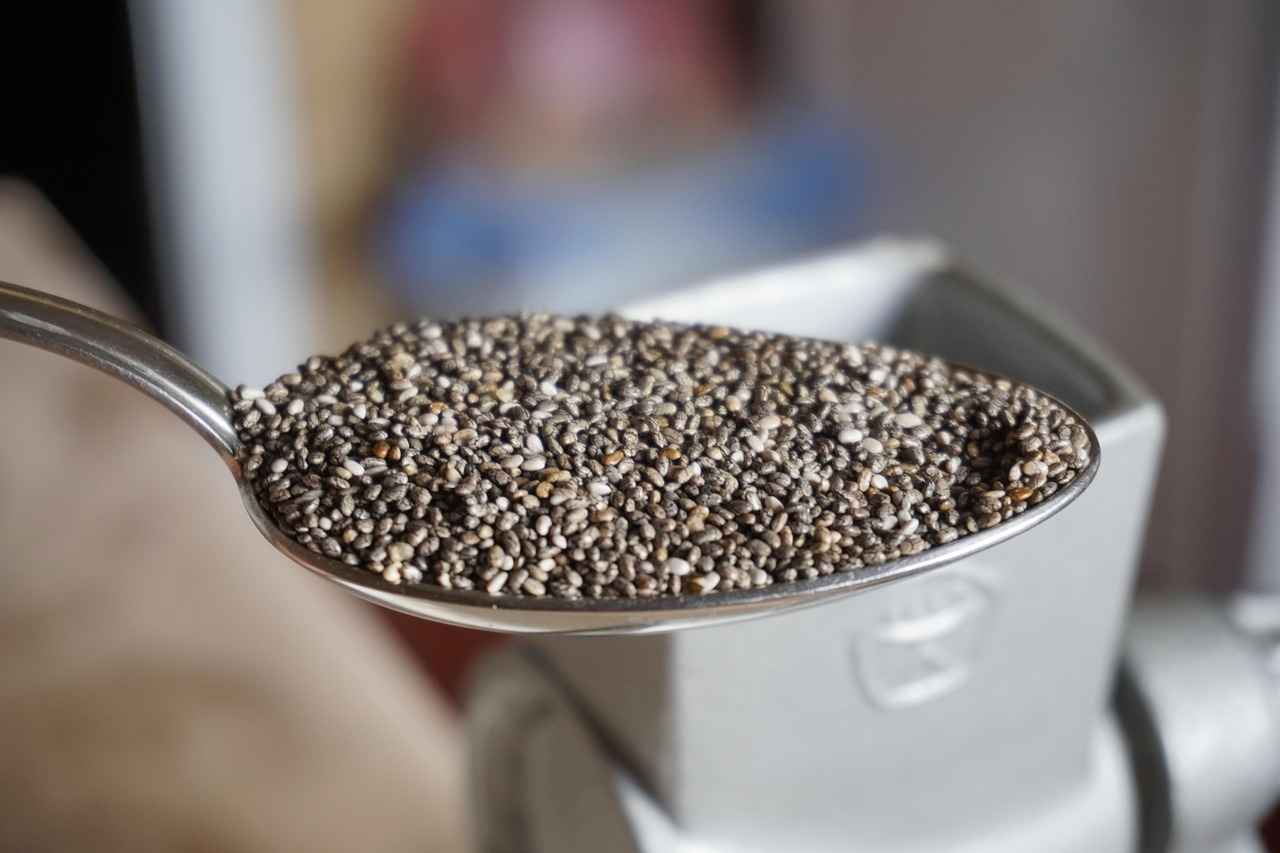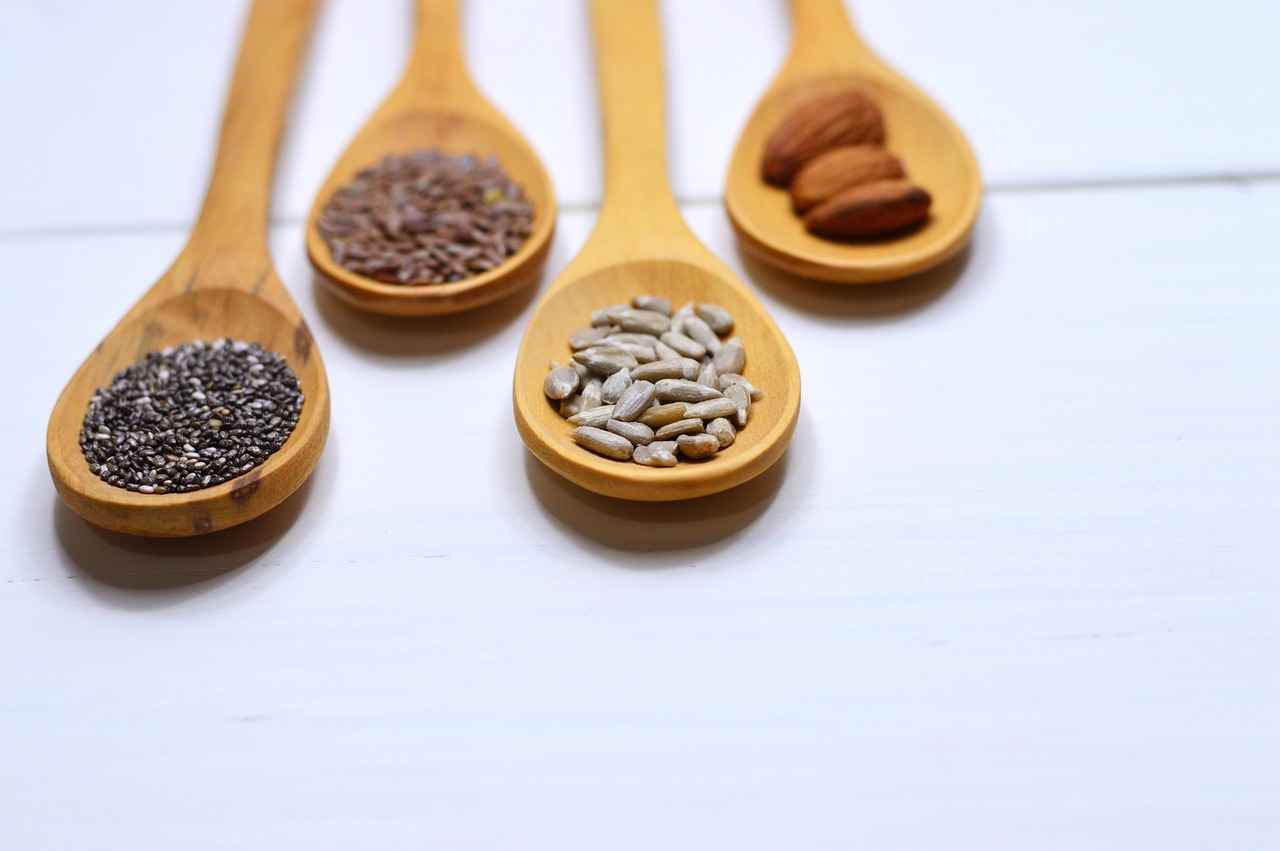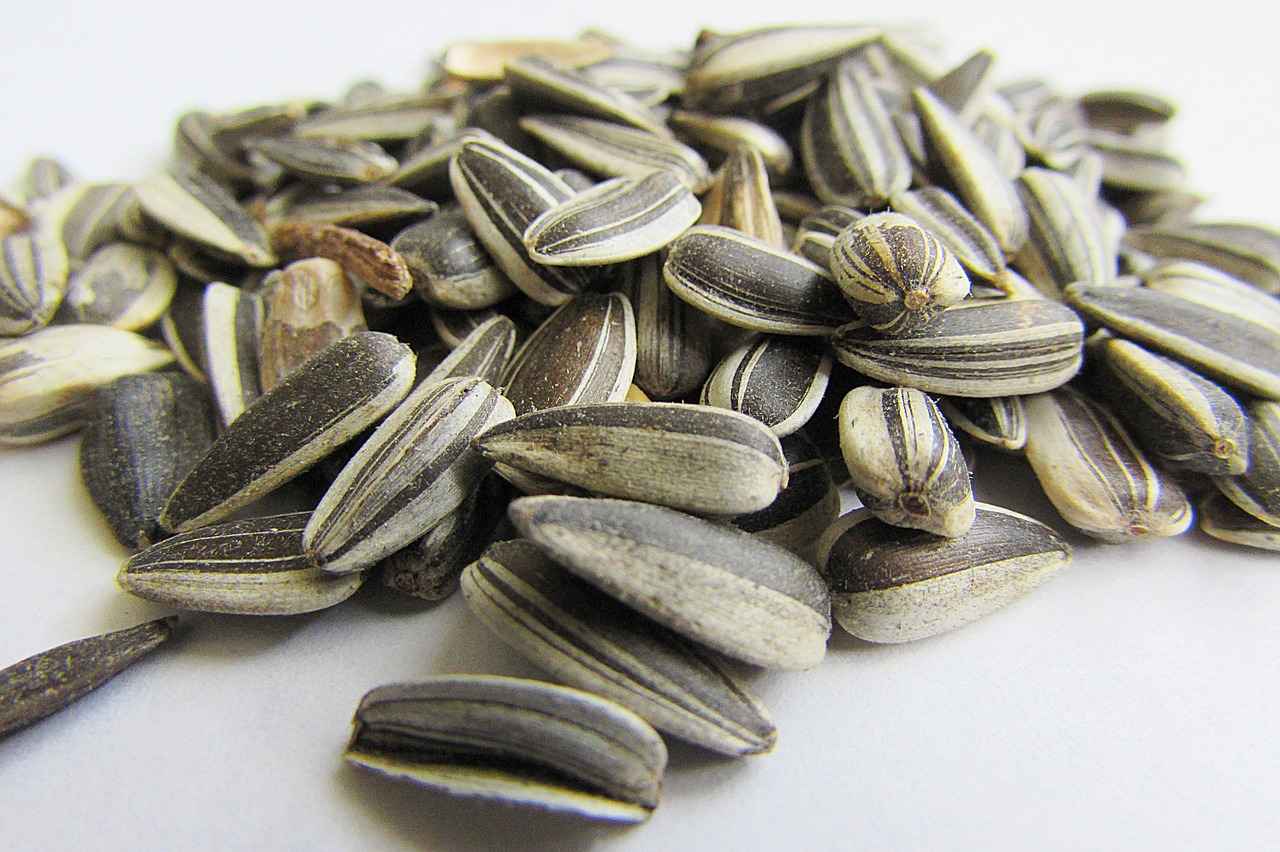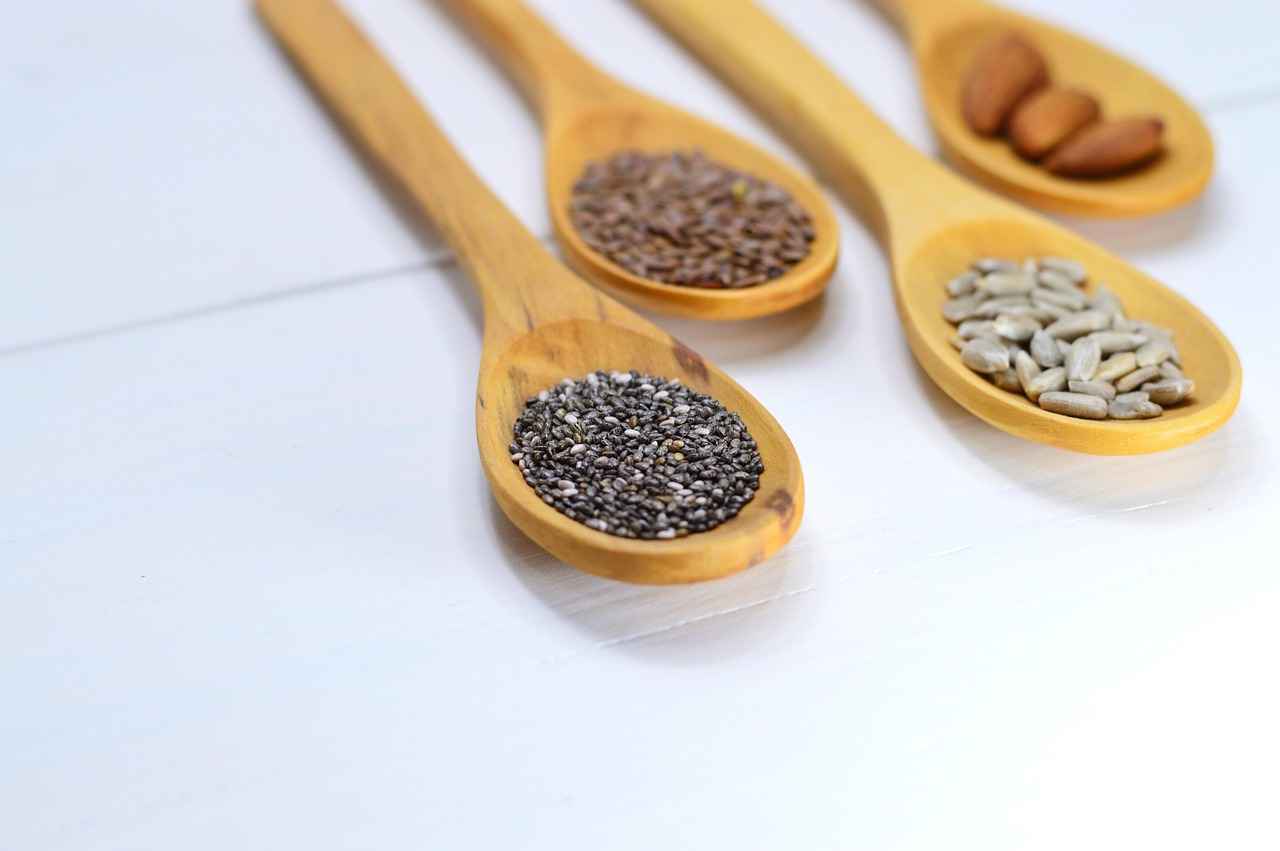Chia seeds are tiny powerhouses packed with nutrients. These small seeds, derived from the Salvia hispanica plant, have gained immense popularity due to their health benefits. In this article, we will explore their numerous advantages, particularly focusing on digestion, weight management, and overall wellness.
Chia seeds are rich in omega-3 fatty acids, fiber, and antioxidants. They are often hailed as a superfood due to their impressive nutrient profile. These seeds can absorb water, creating a gel-like consistency that is beneficial for various health aspects.
One of the most notable benefits of chia seeds is their high fiber content. This fiber is essential for maintaining digestive health. When chia seeds absorb water, they swell and form a gel, which aids in regular bowel movements and prevents issues like constipation.
- Soluble Fiber: This type of fiber slows down digestion, allowing for better absorption of nutrients and extending feelings of fullness.
- Insoluble Fiber: It adds bulk to stools, promoting regularity and preventing digestive discomfort.
Chia seeds can absorb up to 12 times their weight in water, making them an excellent source of hydration. Proper hydration is crucial for optimal digestive function and overall health.
Incorporating chia seeds into your diet can significantly support weight loss efforts. Their high fiber content helps you feel full longer, which can reduce overall calorie intake and curb unhealthy snacking.
The gel-forming ability of chia seeds expands in the stomach, promoting a sense of fullness. This can help manage cravings and prevent overeating, which is beneficial for weight loss.
Chia seeds are low in calories but high in essential nutrients, making them an ideal food for those looking to lose weight without sacrificing nutritional intake.
While chia seeds are generally safe for most people, some may experience digestive discomfort, especially if consumed in large quantities. It’s important to introduce them gradually into your diet.
Some individuals may experience bloating or gas when consuming chia seeds, particularly if they do not drink enough water. Staying hydrated can mitigate these effects.
Though rare, some individuals may have allergies to chia seeds. Monitoring your body’s response when introducing them into your diet is advisable, especially if you have known seed allergies.
Chia seeds are versatile and can be easily added to various dishes. From smoothies to salads, their mild flavor allows for creative culinary uses while boosting nutritional content.
Chia seed pudding is a popular way to enjoy these seeds. Simply mix chia seeds with your choice of milk and sweetener, let it sit overnight, and enjoy a nutritious breakfast or snack.
Blending chia seeds into smoothies or juices enhances their nutritional profile without altering the taste significantly, making it an easy addition to your daily routine.

What Are Chia Seeds?
Chia seeds are small, yet powerful seeds derived from the Salvia hispanica plant, which is native to Central America. These tiny seeds have gained immense popularity in recent years due to their impressive nutritional profile and health benefits. Packed with essential nutrients, chia seeds are a fantastic addition to any diet, especially for those looking to improve their overall health and wellness.
Chia seeds are incredibly nutrient-dense, containing an abundance of omega-3 fatty acids, fiber, protein, and various essential minerals. Just a single ounce (about 28 grams) of chia seeds offers:
- 11 grams of fiber
- 4 grams of protein
- 5 grams of omega-3 fatty acids
- Calcium, magnesium, and phosphorus
This remarkable composition makes chia seeds a valuable source of plant-based nutrition. They are especially favored by vegetarians and vegans who seek alternative sources of omega-3s and protein.
One of the most significant benefits of chia seeds is their ability to enhance digestive health. The high fiber content in these seeds plays a crucial role in promoting regular bowel movements and preventing constipation.
Chia seeds contain both soluble and insoluble fiber. Soluble fiber forms a gel-like substance when mixed with water, which helps slow digestion and improve nutrient absorption. Insoluble fiber adds bulk to the stool, facilitating smooth passage through the digestive tract.
Chia seeds can absorb up to 12 times their weight in water, which makes them an excellent source of hydration. Proper hydration is vital for optimal digestive function, and incorporating chia seeds into your diet can help maintain hydration levels.
For those looking to manage their weight, chia seeds can be a beneficial addition. Their high fiber content helps create a feeling of fullness, which can reduce overall calorie intake.
The gel-forming ability of chia seeds expands in the stomach, promoting a sense of fullness and helping to manage cravings. This can be particularly advantageous for individuals trying to lose weight.
Despite being low in calories, chia seeds are rich in essential nutrients, making them an ideal food for anyone looking to lose weight without compromising on nutrition.
While chia seeds are generally safe for most people, some individuals may experience digestive discomfort, especially if consumed in large quantities. It is essential to introduce them gradually into your diet.
Some people may experience bloating or gas when consuming chia seeds, particularly if they do not drink enough water. Staying hydrated can help mitigate these effects.
Chia seeds are versatile and can be easily added to various dishes. Here are some practical ways to enjoy them:
- Chia Seed Pudding: Mix chia seeds with your choice of milk and sweetener, let it sit overnight, and enjoy a nutritious breakfast.
- Smoothies: Blend chia seeds into smoothies for an added nutritional boost without altering the taste.
- Salads: Sprinkle chia seeds on salads for extra crunch and nutrition.
In conclusion, chia seeds are a nutrient-rich food that offers numerous health benefits, particularly for digestion and weight management. Their versatility makes them easy to incorporate into a variety of meals, enhancing both flavor and nutritional content.

How Do Chia Seeds Improve Digestion?
Chia seeds have gained immense popularity in the health community, and for good reason. They are not only a source of essential nutrients but also play a significant role in promoting digestive health. Understanding how chia seeds improve digestion can help you incorporate them into your diet effectively.
Chia seeds are rich in dietary fiber, which is crucial for maintaining a healthy digestive system. With approximately 10 grams of fiber per ounce, they provide both soluble and insoluble fiber, contributing to various digestive benefits.
When chia seeds are mixed with water, they can absorb up to 12 times their weight, forming a gel-like substance. This gel can help to bulk up stool, making it easier to pass and promoting regular bowel movements. Regular consumption of chia seeds can significantly reduce the risk of constipation and other digestive issues.
- Soluble Fiber: This type of fiber dissolves in water, forming a gel-like consistency. It slows down digestion, allowing for better nutrient absorption and prolonging the feeling of fullness, which can aid in weight management.
- Insoluble Fiber: This fiber does not dissolve in water and adds bulk to the stool. It helps prevent digestive issues like bloating and constipation by promoting regularity.
In addition to aiding digestion, chia seeds also support gut health. The high fiber content helps to maintain a healthy gut microbiome by feeding beneficial bacteria. A balanced gut microbiome is essential for overall health, influencing everything from digestion to immune function.
Chia seeds are not just about fiber; they are also excellent for hydration. When consumed, they absorb water and expand, which can help keep the digestive tract hydrated. Proper hydration is essential for optimal digestive function, as it helps to break down food and absorb nutrients more efficiently.
Incorporating chia seeds into your diet is simple and versatile. Here are some effective ways to enjoy them:
- Chia Seed Pudding: Mix chia seeds with milk or a dairy-free alternative, add a sweetener, and let it sit overnight for a nutritious breakfast.
- Smoothies: Blend chia seeds into your favorite smoothies for an added fiber boost without altering the taste.
- Salads and Bowls: Sprinkle chia seeds on salads or grain bowls for a crunchy texture and nutritional enhancement.
While chia seeds are generally safe for most people, it’s important to consume them in moderation. Some individuals may experience digestive discomfort, such as bloating or gas, particularly if they do not consume enough water. It is advisable to gradually introduce chia seeds into your diet and monitor your body’s response.
In conclusion, chia seeds are a remarkable addition to any diet, especially for those looking to improve their digestive health. Their high fiber content, ability to absorb water, and role in supporting gut health make them a valuable resource for maintaining regularity and overall wellness. Whether you enjoy them in puddings, smoothies, or salads, incorporating chia seeds into your meals can lead to a healthier digestive system.
The Role of Fiber in Digestion
Fiber plays a crucial role in maintaining a healthy digestive system. It is a type of carbohydrate that the body cannot digest, which means it passes through the digestive tract relatively intact. This unique property is what makes fiber so beneficial for overall gut health. Chia seeds, a rich source of both soluble and insoluble fiber, are particularly effective in promoting digestive wellness.
What Makes Fiber Essential for Digestive Health?
- Regulates Bowel Movements: Soluble fiber absorbs water and forms a gel-like substance in the intestines, which helps to soften stool and make it easier to pass. This process is essential for preventing constipation.
- Prevents Digestive Disorders: Insoluble fiber adds bulk to the stool, which helps to prevent digestive issues such as diverticulitis and hemorrhoids. By maintaining regular bowel movements, fiber can significantly reduce the risk of these conditions.
- Supports Gut Microbiota: Fiber acts as a prebiotic, feeding the beneficial bacteria in the gut. A healthy gut microbiome is essential for overall digestive health and can enhance nutrient absorption.
How Do Chia Seeds Contribute to Fiber Intake?
Chia seeds are an excellent source of dietary fiber, containing approximately 10 grams of fiber in just two tablespoons. This high fiber content is beneficial for various reasons:
- Soluble Fiber: The soluble fiber in chia seeds forms a gel when mixed with water, which not only aids in digestion but also helps to stabilize blood sugar levels. This is particularly important for individuals managing diabetes or those looking to maintain steady energy levels throughout the day.
- Insoluble Fiber: The insoluble fiber found in chia seeds adds bulk to the stool, promoting regularity and preventing constipation. This dual-fiber approach makes chia seeds a powerful ally in digestive health.
Hydration and Its Impact on Digestion
One of the remarkable properties of chia seeds is their ability to absorb up to 12 times their weight in water. This characteristic not only aids in hydration but also enhances digestive function. Proper hydration is essential for the digestive system to function optimally, as it helps in the breakdown of food and the absorption of nutrients.
Can Fiber Help with Weight Management?
In addition to promoting digestive health, fiber plays a significant role in weight management. Foods high in fiber, like chia seeds, can help you feel full longer, which may reduce overall calorie intake. The gel-forming ability of chia seeds can promote a sense of fullness, helping to curb cravings and prevent overeating.
Are There Any Side Effects of High Fiber Intake?
While fiber is essential for digestive health, it is important to introduce it gradually into your diet. Consuming too much fiber too quickly can lead to digestive discomfort, including bloating and gas. It is advisable to drink plenty of water when increasing fiber intake to help mitigate these effects.
How to Incorporate Chia Seeds for Digestive Health?
Incorporating chia seeds into your diet is easy and versatile. Here are some practical ways to add chia seeds to your meals:
- Chia Seed Pudding: Mix chia seeds with your choice of milk, let it sit overnight, and enjoy a nutritious pudding.
- Smoothies: Blend chia seeds into your favorite smoothies for an added fiber boost.
- Salads and Soups: Sprinkle chia seeds on top of salads or mix them into soups for extra texture and nutrition.
In summary, fiber is a vital component of a healthy diet, and chia seeds are an excellent source of this essential nutrient. By promoting digestive wellness, stabilizing blood sugar levels, and supporting weight management, chia seeds can be a valuable addition to any health-conscious diet.
Soluble Fiber Benefits
Chia seeds are not just a trendy superfood; they are an incredible source of soluble fiber that offers numerous health benefits. When chia seeds come into contact with liquid, they absorb it and form a gel-like consistency. This unique property plays a significant role in enhancing digestion and promoting overall health.
- Improved Nutrient Absorption: The gel-like substance created by soluble fiber in chia seeds slows down the digestive process. This means that nutrients from the food you consume are absorbed more effectively, ensuring your body gets the maximum benefit from your meals.
- Prolonged Satiety: One of the most significant advantages of consuming chia seeds is their ability to keep you feeling full for longer periods. The gel expands in the stomach, which can help curb hunger pangs and reduce the likelihood of unhealthy snacking between meals.
- Weight Management: By promoting a sense of fullness, chia seeds can aid in weight management. Their incorporation into a balanced diet can assist in reducing overall calorie intake, making them a valuable tool for those looking to lose or maintain weight.
- Blood Sugar Regulation: Soluble fiber can help stabilize blood sugar levels by slowing the absorption of sugar into the bloodstream. This is particularly beneficial for individuals managing diabetes or those at risk of developing the condition.
- Heart Health: The soluble fiber in chia seeds can also contribute to heart health by helping to lower cholesterol levels. Regular consumption may reduce the risk of cardiovascular disease, making chia seeds a heart-friendly addition to your diet.
Moreover, chia seeds are incredibly versatile and can be easily incorporated into various dishes. Whether you sprinkle them on salads, blend them into smoothies, or use them in baking, they provide a nutritional boost without altering the flavor of your meals.
It’s important to remember that while chia seeds offer many benefits, they should be consumed with adequate hydration. Due to their high fiber content, it’s advisable to drink plenty of water to avoid potential digestive discomfort.
In summary, the soluble fiber found in chia seeds is a powerful ally in promoting better digestion, enhancing nutrient absorption, and supporting weight management. Their ability to form a gel-like substance not only helps with satiety but also plays a role in stabilizing blood sugar levels and improving heart health. Incorporating chia seeds into your daily routine can be a simple yet effective way to boost your overall wellness.
Insoluble Fiber Benefits
Insoluble fiber plays a crucial role in maintaining digestive health and overall well-being. Found in various plant-based foods, it is essential for promoting regular bowel movements and preventing common digestive issues. This article delves into the benefits of insoluble fiber, particularly in relation to gut health and its broader implications for physical wellness.
Unlike soluble fiber, which dissolves in water and forms a gel-like substance, insoluble fiber does not dissolve. Instead, it adds bulk to the stool, facilitating its passage through the digestive tract. Sources of insoluble fiber include whole grains, nuts, seeds, and the skins of fruits and vegetables.
Insoluble fiber is essential for maintaining a healthy digestive system. Its ability to add bulk to stool helps in the following ways:
- Prevents Constipation: By increasing stool bulk, insoluble fiber helps to speed up the transit time through the intestines, reducing the likelihood of constipation.
- Reduces Bloating: Regular consumption of insoluble fiber can minimize bloating and discomfort, as it aids in the efficient movement of food through the digestive tract.
- Enhances Gut Health: A diet rich in insoluble fiber can promote a healthy gut microbiome, which is essential for overall digestive health.
One of the most significant benefits of insoluble fiber is its ability to promote regular bowel movements. When consumed, it absorbs water and swells, which helps to form a softer and bulkier stool. This process not only makes it easier to pass but also reduces the risk of developing conditions such as hemorrhoids and diverticulitis.
The recommended daily intake of fiber for adults is around 25 to 30 grams, with a portion of that being insoluble fiber. Incorporating a variety of fiber-rich foods into your diet can help you meet this requirement. Foods such as whole grain bread, brown rice, and leafy greens are excellent sources.
Insoluble fiber does not just stop at improving digestive health; it has several other potential health benefits:
- Weight Management: Foods high in insoluble fiber tend to be more filling, which can help control appetite and reduce overall calorie intake.
- Blood Sugar Control: By promoting regular bowel movements and improving gut health, insoluble fiber can also aid in stabilizing blood sugar levels.
- Heart Health: A diet rich in fiber is linked to lower cholesterol levels and reduced risk of heart disease.
Incorporating insoluble fiber into your daily meals can be simple and enjoyable. Here are some practical tips:
- Choose Whole Grains: Opt for whole grain products instead of refined grains.
- Add Vegetables: Include a variety of vegetables in your meals, especially those with edible skins.
- Snack on Nuts and Seeds: Choose nuts and seeds as healthy snacks to boost your fiber intake.
In conclusion, insoluble fiber is a vital component of a healthy diet, offering numerous benefits that extend beyond digestive health. By understanding its importance and incorporating fiber-rich foods into your meals, you can enhance your overall well-being.
Hydration and Chia Seeds
Chia seeds, derived from the Salvia hispanica plant, are increasingly recognized for their remarkable health benefits. One of the standout features of these tiny seeds is their ability to absorb up to 12 times their weight in water. This unique property not only enhances hydration but also plays a vital role in digestive health and overall well-being.
When chia seeds are mixed with liquid, they swell and form a gel-like consistency. This gel is not just a fascinating physical transformation; it serves several important functions for the body. By absorbing water, chia seeds help maintain hydration levels, which is crucial for various bodily functions.
- Hydration and Digestive Function: Proper hydration is essential for optimal digestive function. Water is necessary for the digestive system to break down food efficiently and absorb nutrients. When chia seeds are consumed, they help to retain water in the digestive tract, promoting smoother digestion and regular bowel movements.
- Prevention of Dehydration: Dehydration can lead to numerous health issues, including constipation, fatigue, and impaired cognitive function. By incorporating chia seeds into your diet, you can enhance your hydration levels, thereby reducing the risk of these issues.
Moreover, the gel-forming ability of chia seeds contributes to a feeling of fullness. When chia seeds swell in the stomach, they create a sense of satiety that can help curb overeating and assist in weight management. This is particularly beneficial for those looking to maintain a healthy weight or lose excess pounds.
Staying adequately hydrated is crucial for maintaining overall health. Water plays a key role in:
- Regulating Body Temperature: Adequate hydration helps maintain a stable body temperature, especially during physical activities.
- Supporting Nutrient Transport: Water is essential for transporting nutrients and oxygen to cells, ensuring that the body functions optimally.
- Aiding in Detoxification: Proper hydration supports kidney function, allowing for the efficient elimination of waste products from the body.
Incorporating chia seeds into your daily routine can be a simple yet effective way to boost your hydration levels. They can be added to smoothies, yogurt, or even baked goods. Their mild flavor allows for versatility in various recipes, making them an easy addition to a health-conscious diet.
It’s important to note that while chia seeds can significantly enhance hydration, they should be consumed with adequate fluids. If not paired with sufficient water intake, the gel formed by chia seeds can lead to digestive discomfort. Therefore, it’s advisable to drink plenty of water throughout the day, especially when consuming chia seeds.
In conclusion, chia seeds offer a unique approach to hydration and digestive health. Their ability to absorb water and form a gel-like substance makes them an excellent addition to any diet. By incorporating these tiny seeds into your meals, you can support your hydration needs and promote optimal digestive function. Whether you’re looking to improve your overall health or manage your weight, chia seeds provide a nutrient-packed solution that is both effective and enjoyable.

Chia Seeds and Weight Management
In recent years, the popularity of chia seeds has surged, particularly among those seeking to manage their weight effectively. These tiny seeds, derived from the Salvia hispanica plant, are not only nutrient-dense but also play a significant role in weight management strategies. Let’s delve deeper into how incorporating chia seeds into your diet can help you achieve your weight loss goals.
Chia seeds are a remarkable addition to any weight loss plan due to their unique properties. Their high fiber content is one of the primary reasons they are effective in promoting satiety, which can lead to reduced calorie intake.
When chia seeds come into contact with liquid, they absorb up to 12 times their weight in water, forming a gel-like substance. This gel formation expands in your stomach, creating a sensation of fullness that can last for hours. By feeling satisfied for longer periods, you are less likely to indulge in unhealthy snacks or overeat during meals.
Another appealing aspect of chia seeds is their low-calorie yet nutrient-rich profile. Just two tablespoons of chia seeds contain approximately 138 calories, along with essential nutrients such as protein, omega-3 fatty acids, and various vitamins and minerals. This makes them an excellent choice for those looking to lose weight without sacrificing essential nutrients.
Incorporating chia seeds into your meals can significantly help in managing cravings. Their ability to form a gel not only aids in satiety but also slows down the digestion of carbohydrates, which helps maintain stable blood sugar levels. This stability can prevent the sudden spikes and drops in blood sugar that often lead to cravings and unhealthy snacking.
Integrating chia seeds into your daily meals is simple and versatile. Here are some practical ideas:
- Chia Seed Pudding: Combine chia seeds with your choice of milk and a sweetener, let it sit overnight, and enjoy a nutritious breakfast or snack.
- Smoothies: Blend chia seeds into your smoothies for an added nutrient boost without altering the taste.
- Baking: Add chia seeds to baked goods like muffins or bread for extra fiber and nutrition.
- Salads: Sprinkle chia seeds on salads for a crunchy texture and enhanced nutritional value.
While chia seeds offer numerous health benefits, it’s important to consume them in moderation. Some individuals may experience digestive discomfort, such as bloating or gas, especially if they are not adequately hydrated. To minimize these effects, ensure you drink plenty of water throughout the day.
Incorporating chia seeds into your diet can be a game-changer for weight management. Their ability to promote satiety, stabilize blood sugar levels, and provide essential nutrients makes them an ideal food for those looking to lose weight. By experimenting with various recipes and methods of consumption, you can enjoy the benefits of chia seeds while working towards your health goals.
Feeling Full Longer
is a key aspect of managing weight effectively, and chia seeds play a significant role in this process. These tiny seeds have unique properties that can help curb hunger and promote a feeling of satiety, making them an excellent addition to a weight-loss diet.
When chia seeds are consumed, they can absorb a considerable amount of liquid—up to 12 times their weight. This remarkable gel-forming ability occurs in the stomach, where the seeds swell and create a gel-like substance. This gel not only slows down the digestion process but also takes up space in the stomach, leading to a feeling of fullness that can last for several hours. As a result, individuals may find themselves less inclined to snack between meals or overeat during main meals.
Research suggests that the sensation of fullness is closely linked to the fiber content found in chia seeds. Each serving is rich in both soluble and insoluble fiber, which plays a crucial role in digestive health. Soluble fiber, in particular, forms a gel that slows digestion and prolongs the absorption of nutrients, which helps maintain steady energy levels and reduces cravings. Meanwhile, insoluble fiber adds bulk to the digestive tract, promoting regular bowel movements and enhancing overall gut health.
Moreover, the combination of fiber and protein found in chia seeds can enhance feelings of fullness even further. Protein is known to trigger the release of hormones that signal satiety to the brain, while fiber helps create a physical barrier in the stomach that can delay hunger signals. This dual-action makes chia seeds a powerful tool for those looking to manage their weight effectively.
Incorporating chia seeds into your diet is simple and versatile. They can be added to smoothies, yogurt, or oatmeal, or used as a thickening agent in soups and sauces. For those who enjoy baking, chia seeds can be included in bread or muffin recipes for added nutrition. The mild flavor of chia seeds makes them easy to integrate into various dishes without altering the taste.
It’s important to note that while chia seeds can help promote a feeling of fullness, they should be consumed as part of a balanced diet. Pairing them with other nutrient-dense foods, such as fruits, vegetables, and lean proteins, can enhance their effectiveness in managing hunger and supporting overall health.
For individuals who struggle with cravings or emotional eating, chia seeds can serve as a practical solution. By incorporating these seeds into meals or snacks, individuals may find it easier to resist the temptation of unhealthy foods, ultimately aiding in their weight loss journey.
In conclusion, the gel-forming ability of chia seeds provides a natural way to enhance feelings of fullness, making them a valuable addition to any weight management plan. Their high fiber and protein content work synergistically to promote satiety, while their versatility allows for easy incorporation into daily meals. By understanding how chia seeds can support weight loss, individuals can make informed dietary choices that align with their health goals.
Low-Calorie Nutrient Density
Chia seeds are often hailed as a superfood due to their impressive nutrient profile. Despite being low in calories, these tiny seeds are packed with essential nutrients, making them an excellent choice for individuals aiming to maintain a healthy diet while managing their weight.
Chia seeds are remarkably nutrient-dense. Just a two-tablespoon serving contains:
- 140 calories
- 5 grams of protein
- 11 grams of fiber
- 18% of the Daily Value (DV) for Calcium
- 27% of the DV for Magnesium
- 30% of the DV for Phosphorus
- Omega-3 fatty acids
This unique combination of macronutrients and micronutrients contributes to their status as a powerful dietary addition.
Incorporating chia seeds into your diet can be a strategic move for weight management. Their high fiber content plays a vital role in promoting feelings of fullness, which can help reduce overall calorie intake. When chia seeds are consumed, they absorb water and expand in the stomach, creating a gel-like substance that enhances satiety.
This sensation of fullness helps prevent unhealthy snacking and overeating. By feeling satisfied longer, individuals are less likely to reach for high-calorie, low-nutrient options. This can be particularly beneficial for those who struggle with portion control.
Chia seeds provide a wealth of nutrients without the burden of excess calories. For those on a weight loss journey, this means you can enjoy a variety of essential vitamins and minerals while keeping your calorie intake in check. This makes chia seeds an ideal choice for anyone looking to lose weight without compromising their nutritional needs.
Integrating chia seeds into your meals is both easy and versatile. They can be added to:
- Smoothies
- Oatmeal
- Yogurt
- Baking recipes
- Salads
For a nutritious breakfast, consider making chia seed pudding. Simply mix chia seeds with milk (dairy or plant-based) and let them soak overnight. This not only creates a deliciously creamy texture but also enhances the seeds’ nutritional benefits.
While chia seeds are generally safe for most people, moderation is key. Some individuals may experience digestive discomfort if they consume too many seeds at once, particularly if they do not drink enough water. It’s advisable to start with a small amount and gradually increase your intake.
As chia seeds absorb significant amounts of water, ensuring adequate hydration is crucial for optimal digestion. This helps prevent potential issues such as bloating or gas.
Chia seeds are a remarkable addition to any diet, particularly for those focused on weight management and overall health. Their low-calorie, nutrient-dense profile makes them a perfect food choice for anyone looking to enhance their diet without sacrificing flavor or nutrition.

Are There Any Side Effects of Chia Seeds?
Chia seeds have gained immense popularity due to their numerous health benefits, particularly in the realms of digestion and weight management. However, as with any food, it is crucial to understand the potential side effects associated with their consumption. This article delves into the possible side effects of chia seeds, helping you make informed dietary choices.
While chia seeds are generally considered safe for most individuals, some may experience digestive discomfort when consuming them, especially in larger quantities. This can lead to questions about how to properly incorporate chia seeds into your diet without adverse effects.
One of the most common side effects reported by chia seed consumers is digestive discomfort. This can manifest as bloating, gas, or even constipation. The high fiber content in chia seeds, while beneficial for digestion, can cause issues if introduced too quickly into the diet.
- Gradual Introduction: It is advisable to start with small amounts of chia seeds and gradually increase your intake. This allows your digestive system to adjust to the increased fiber.
- Hydration is Key: Chia seeds can absorb up to 12 times their weight in water. Therefore, it is essential to drink plenty of fluids when consuming chia seeds to help prevent digestive issues.
Although rare, some individuals may experience allergic reactions to chia seeds. Symptoms can range from mild to severe and may include skin rashes, itching, or gastrointestinal distress. If you have a history of seed allergies, it is prudent to consult with a healthcare professional before adding chia seeds to your diet.
Chia seeds may also interact with certain medications, particularly those that affect blood sugar levels or blood pressure. If you are on medication for such conditions, it is wise to discuss chia seed consumption with your doctor to avoid any potential complications.
To enjoy the benefits of chia seeds while minimizing potential side effects, consider the following tips:
- Start Small: Begin with a teaspoon of chia seeds daily and gradually increase to a tablespoon or more as tolerated.
- Soak Before Eating: Soaking chia seeds in water or your favorite liquid before consumption can help reduce the risk of digestive issues.
- Pair with Other Foods: Incorporate chia seeds into meals that are rich in other nutrients, such as smoothies or yogurt, to enhance digestion.
In summary, while chia seeds offer a wealth of health benefits, it is essential to be aware of the potential side effects. By introducing them gradually into your diet and staying hydrated, you can enjoy their nutritional advantages while minimizing discomfort. Always listen to your body and consult with a healthcare professional if you have concerns about allergies or interactions with medications.
Potential Digestive Issues
Chia seeds have gained immense popularity for their numerous health benefits, particularly in the realms of digestion and weight management. However, while these tiny seeds are often celebrated for their nutritional value, it is essential to consider potential digestive issues that some individuals may encounter when incorporating them into their diets. Understanding these issues can help ensure a positive experience with chia seeds.
Many people enjoy chia seeds without any problems, yet some might experience bloating, gas, or even discomfort after consumption. These digestive issues can arise for several reasons, primarily related to fiber intake and hydration levels.
Chia seeds are incredibly high in fiber, which is beneficial for digestive health but can lead to discomfort if introduced too quickly into the diet. The seeds can absorb up to 12 times their weight in water, forming a gel-like consistency. This property can contribute to feelings of fullness but may also lead to bloating if not consumed with adequate hydration.
Staying hydrated is crucial when consuming chia seeds. Insufficient water intake can exacerbate digestive discomfort, as the seeds may expand in the digestive tract without enough liquid to facilitate their movement. To mitigate these effects, it is advisable to:
- Drink plenty of water throughout the day.
- Soak chia seeds in water or another liquid before consumption.
- Gradually increase the amount of chia seeds in your diet to allow your digestive system to adjust.
In addition to hydration, other factors may contribute to digestive issues when consuming chia seeds:
- Individual Sensitivities: Some people may have a sensitivity to high-fiber foods, which can lead to gas or bloating.
- Quantity of Consumption: Eating excessive amounts of chia seeds in one sitting can overwhelm the digestive system.
- Dietary Habits: A sudden increase in fiber intake from chia seeds without a corresponding increase in water can lead to discomfort.
To enjoy the benefits of chia seeds while minimizing potential digestive problems, consider the following tips:
- Start Slowly: Begin with a small amount, such as one teaspoon, and gradually increase as your body adjusts.
- Stay Hydrated: Ensure you are drinking enough fluids, particularly when consuming chia seeds.
- Incorporate into Meals: Add chia seeds to smoothies, yogurt, or oatmeal, where they can be combined with other hydrating ingredients.
In conclusion, while chia seeds are a fantastic source of nutrients and can enhance digestive health, it is essential to be aware of potential digestive issues. By staying hydrated and introducing chia seeds gradually, you can enjoy their many benefits without discomfort.
Allergic Reactions
Chia seeds are often hailed as a superfood due to their impressive nutritional profile and health benefits. However, as with any food, it’s essential to be aware of potential . While allergies to chia seeds are rare, they can occur, and understanding the signs and symptoms is crucial for those who are considering adding these seeds to their diet.
Individuals who are allergic to chia seeds may experience a range of symptoms, which can vary in severity. Common symptoms include:
- Skin Reactions: This can include hives, rashes, or itching.
- Respiratory Issues: Allergic reactions may lead to difficulty breathing, wheezing, or nasal congestion.
- Gastrointestinal Distress: Symptoms such as nausea, vomiting, or diarrhea may occur.
While anyone can potentially develop an allergy to chia seeds, certain individuals may be at a higher risk. Those with a history of seed allergies, particularly to other seeds like sesame or flax, should exercise caution. It is advisable to consult with a healthcare professional before incorporating chia seeds into your diet.
If you are considering adding chia seeds to your meals, it is essential to do so gradually. Here are some tips:
- Start Small: Begin with a small amount, such as half a teaspoon, to see how your body reacts.
- Monitor Your Body’s Response: Keep track of any adverse reactions or discomfort.
- Stay Hydrated: Drink plenty of water when consuming chia seeds, as they absorb liquid and can expand in the stomach.
If you suspect that you are experiencing an allergic reaction to chia seeds, it is important to take immediate action:
- Stop Consumption: Cease eating chia seeds and any products containing them.
- Seek Medical Attention: If symptoms are severe, such as difficulty breathing or swelling of the face and throat, seek emergency medical help.
- Consult an Allergist: A healthcare professional can provide testing and advice on managing food allergies.
In summary, while chia seeds offer numerous health benefits, it is imperative to be aware of the potential for allergic reactions. By understanding the symptoms, risks, and safe introduction methods, you can enjoy the health benefits of chia seeds while minimizing the risk of adverse effects.

How to Incorporate Chia Seeds into Your Diet?
Chia seeds are incredibly versatile and can seamlessly blend into a variety of dishes, enhancing both their flavor and nutritional value. Whether you’re looking to boost your breakfast, snack healthily, or create a filling meal, chia seeds can be the perfect addition. Their mild taste allows for creative culinary uses, making them a favorite among health enthusiasts.
Chia seeds are not only rich in nutrients but also offer a plethora of health benefits. They are an excellent source of omega-3 fatty acids, fiber, and essential minerals. Incorporating them into your diet can help improve digestion, support weight management, and provide sustained energy throughout the day.
- Chia Seed Pudding: A popular choice for breakfast or snacks, chia pudding is made by soaking chia seeds in milk or a dairy-free alternative. Simply mix 1/4 cup of chia seeds with 1 cup of milk, add your favorite sweetener, and let it sit overnight in the refrigerator. In the morning, top with fruits, nuts, or granola for a delicious meal.
- Smoothies: Adding chia seeds to your smoothies is an effortless way to enhance their nutritional profile. Blend a tablespoon of chia seeds with your favorite fruits, leafy greens, and a liquid base like water, juice, or almond milk for an energizing drink.
- Baking: Chia seeds can be incorporated into baked goods such as bread, muffins, or energy bars. They can replace eggs in vegan recipes by mixing 1 tablespoon of chia seeds with 2.5 tablespoons of water and letting it sit until it forms a gel.
- Salads and Dressings: Sprinkle chia seeds over salads for added crunch and nutrition. You can also blend them into dressings to create a thicker, nutrient-rich sauce.
- Soups and Stews: Chia seeds can be added to soups and stews as a thickening agent. They absorb liquid and create a gel-like texture, enhancing the dish’s consistency while boosting fiber content.
While chia seeds are beneficial, moderation is key. A typical serving size is about 1 to 2 tablespoons per day. This amount provides a substantial dose of nutrients without overwhelming your digestive system. Remember to drink plenty of water when consuming chia seeds, as they absorb liquid and expand in your stomach.
Though chia seeds are generally safe, some individuals may experience digestive discomfort if they are not used to high-fiber foods. Start with small amounts and gradually increase your intake. Additionally, those with known allergies to seeds should exercise caution.
Incorporating chia seeds into your diet is a simple yet effective way to enhance your meals and boost your health. Their versatility allows for endless culinary creativity, making it easy to enjoy their numerous benefits. So, whether you are preparing a smoothie, baking a treat, or crafting a salad, consider adding these tiny powerhouses to your plate for a nutritious upgrade.
Chia Seed Pudding Recipes
Chia seed pudding has become a beloved choice for health enthusiasts, offering a delightful way to incorporate nutrient-rich chia seeds into your diet. This simple yet versatile dish can be customized to suit your taste preferences, making it an ideal option for breakfast or a snack. The process is straightforward: combine chia seeds with your preferred type of milk, add a sweetener if desired, and allow the mixture to rest overnight. The result is a creamy, satisfying pudding packed with health benefits.
Chia seed pudding is not just a trendy dish; it is a powerhouse of nutrition. These tiny seeds are loaded with omega-3 fatty acids, fiber, protein, and various essential minerals. By incorporating chia seed pudding into your diet, you can enjoy:
- Improved Digestion: The high fiber content aids in maintaining healthy digestion.
- Weight Management: Chia seeds promote a feeling of fullness, helping to curb overeating.
- Energy Boost: The combination of protein and healthy fats provides sustained energy throughout the day.
Making chia seed pudding is incredibly easy. Here’s a basic recipe to get you started:
Ingredients:- 1/4 cup chia seeds- 1 cup of milk (dairy or plant-based)- 1-2 tablespoons of sweetener (honey, maple syrup, or agave)- Optional toppings: fruits, nuts, or granolaInstructions:1. In a bowl, combine chia seeds, milk, and sweetener.2. Stir well to avoid clumping.3. Cover and refrigerate overnight (or at least 4 hours).4. Before serving, stir again and add your favorite toppings.
While the basic chia seed pudding recipe is delicious on its own, you can easily customize it to suit your taste. Here are some popular variations:
- Chocolate Chia Seed Pudding: Add cocoa powder for a rich chocolate flavor.
- Vanilla Almond Pudding: Use almond milk and a splash of vanilla extract for a nutty twist.
- Berry Bliss: Mix in fresh or frozen berries for a fruity addition.
- Matcha Chia Pudding: Incorporate matcha powder for a refreshing green tea flavor.
To ensure your chia seed pudding turns out perfectly every time, consider the following tips:
- Mix Thoroughly: Stir the mixture well to prevent clumping of chia seeds.
- Adjust Consistency: If you prefer a thicker pudding, add more chia seeds; for a thinner consistency, increase the liquid.
- Experiment with Flavors: Don’t hesitate to try different spices or flavorings, such as cinnamon or nutmeg, to enhance the taste.
In summary, chia seed pudding is a nutritious, easy-to-make dish that can be tailored to fit any palate. Whether you enjoy it plain or with an array of toppings, it serves as a fantastic way to boost your nutrient intake while satisfying your taste buds.
Adding to Smoothies and Juices
Adding Chia Seeds to Smoothies and Juices
Incorporating chia seeds into your smoothies and juices is an effortless way to boost their nutritional value. These tiny seeds are packed with essential nutrients, including omega-3 fatty acids, fiber, protein, and antioxidants, making them a perfect addition to any health-focused beverage.
One of the most significant advantages of adding chia seeds to your drinks is their ability to enhance satiety without altering the flavor. When blended, chia seeds become almost undetectable, allowing you to enjoy your favorite smoothies and juices while reaping the benefits of these superfoods.
- Boost Nutritional Value: Chia seeds are nutrient-dense, providing a rich source of fiber, protein, and healthy fats. This combination supports overall health and wellness.
- Increase Fiber Intake: The high fiber content in chia seeds aids digestion and helps maintain regular bowel movements.
- Support Weight Management: The gel-like consistency that chia seeds develop when mixed with liquid can help you feel fuller for longer, reducing cravings and unnecessary snacking.
To maximize the benefits of chia seeds in your smoothies, consider the following preparation methods:
1. **Soaking**: Soak chia seeds in water or your favorite milk for about 10-15 minutes before adding them to your smoothie. This allows them to expand and form a gel, enhancing their texture and digestibility.2. **Blending**: If you're short on time, you can add dry chia seeds directly to your blender. Just be sure to increase the liquid content in your smoothie to account for the seeds' absorption of moisture.3. **Combine with Other Ingredients**: Pair chia seeds with fruits, vegetables, and other nutrient-rich ingredients to create a balanced smoothie that meets your dietary needs.
Here are a few delicious smoothie ideas that incorporate chia seeds:
- Berry Chia Smoothie: Blend together a cup of mixed berries, a banana, a cup of almond milk, and two tablespoons of chia seeds for a refreshing and nutritious drink.
- Green Chia Smoothie: Combine spinach, a green apple, a banana, a cup of coconut water, and chia seeds for a revitalizing green smoothie.
- Chocolate Chia Smoothie: Mix together a banana, a tablespoon of cocoa powder, a cup of milk (dairy or plant-based), and chia seeds for a guilt-free chocolate treat.
Chia seeds can also be a fantastic addition to your favorite juices. They not only enhance the nutritional profile but also add a unique texture. Simply stir in a tablespoon of chia seeds into freshly squeezed juice and let it sit for a few minutes before consuming. This allows the seeds to absorb some of the juice and expand, creating a delightful experience.
In conclusion, blending chia seeds into your smoothies and juices is a simple and effective way to enhance your diet. Their nutritional benefits and versatility make them an ideal ingredient for anyone looking to improve their health and wellness.
Frequently Asked Questions
- What are the main health benefits of chia seeds?
Chia seeds are packed with nutrients, offering benefits such as improved digestion, weight management, and enhanced overall wellness due to their high fiber and omega-3 fatty acid content.
- How do chia seeds help with digestion?
Thanks to their high fiber content, chia seeds promote digestive health by absorbing water and forming a gel-like substance that aids in regular bowel movements and prevents constipation.
- Can chia seeds assist in weight loss?
Absolutely! Chia seeds can help you feel full longer due to their gel-forming ability, which can reduce overall calorie intake and curb unhealthy snacking.
- Are there any side effects of consuming chia seeds?
While generally safe, some individuals may experience digestive discomfort, such as bloating or gas, especially if not properly hydrated. It’s best to introduce them gradually into your diet.
- How can I incorporate chia seeds into my meals?
Chia seeds are incredibly versatile! You can add them to smoothies, salads, or make delicious chia seed pudding by mixing them with milk and sweetener and letting it sit overnight.












